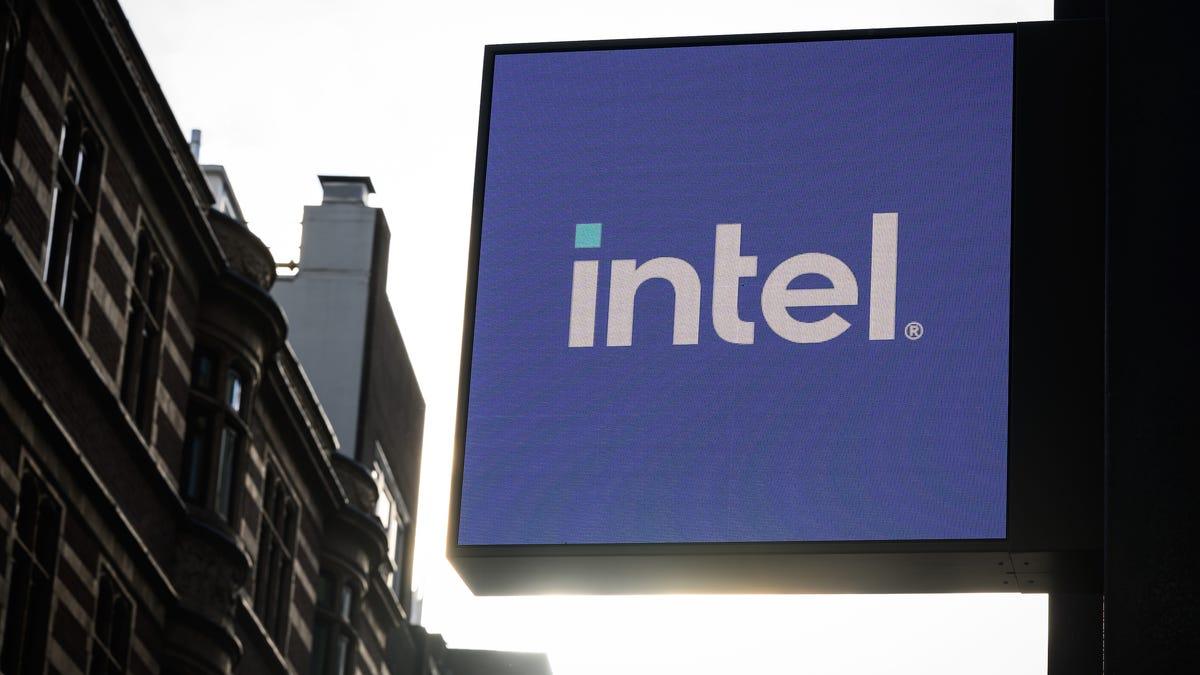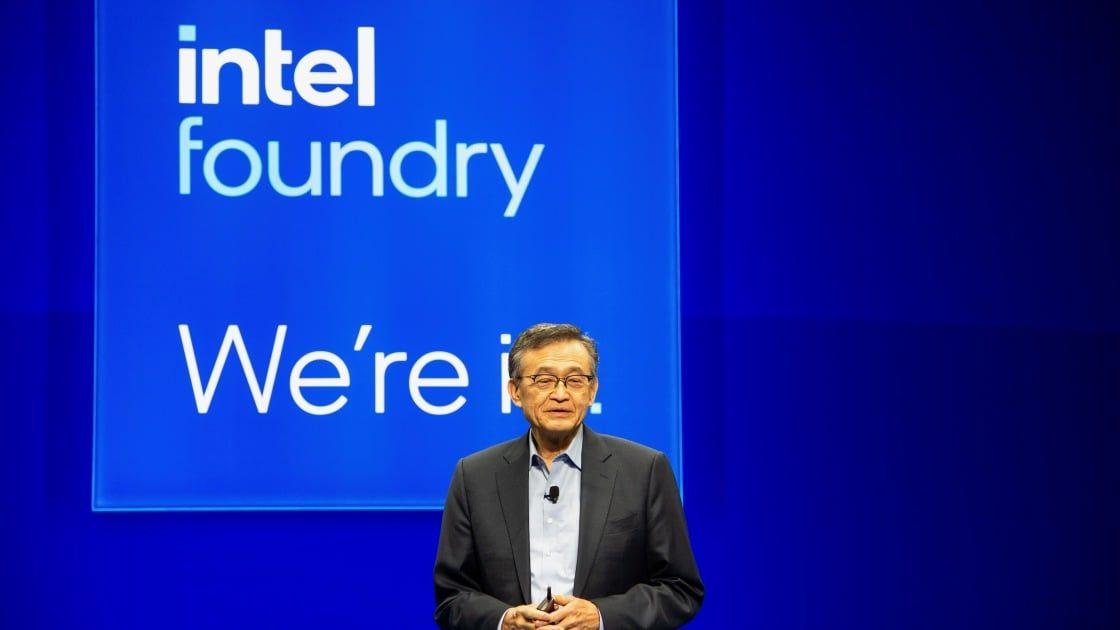Intel's Turnaround Strategy: CEO Lip-Bu Tan Urges Patience Amid AI and Manufacturing Challenges
2 Sources
2 Sources
[1]
Intel Stock Has Fallen Nearly 64% In 5 Years, Now CEO Lip-Bu Tan Says 'Clearly, There Are No Quick Fixes,' But Investors Should 'Stay Tuned' - Intel (NASDAQ:INTC), Advanced Micro Devices (NASDAQ:AMD)
As Intel Corporation INTC works to reclaim its position in the semiconductor race, its new CEO is urging patience from investors. What Happened: On Thursday, during Intel's first-quarter financial earnings call, CEO Lip-Bu Tan was asked how long Intel's transformation might take. In response, Tan admitted that "Clearly, there are no quick fixes," but underscored that the company is working on both short- and long-term plans to improve its competitive standing, especially in AI, GPUs, and edge computing. "We are working through the roadmap with weekly update with the team," Tan said. "We may embrace some of the disruptive technology that is out there and partner with them to bring products to market faster." Despite not offering a specific timeline for the company's recovery, Tan encouraged stakeholders to remain optimistic. "Stay tuned," he said, adding that all these plans are a work in progress. See Also: Intel's Older Parts Are In Demand Thanks To US-China Trade War: 'Tariffs Have Everybody Hedging Their Bets,' Says Executive Why It's Important: Intel stock has dropped 63.74% in the past five years, significantly underperforming than peers like Nvidia Corporation NVDA and Advanced Micro Devices AMD, both of which have capitalized on the AI boom and rising demand for advanced chips. Last week, Reuters reported that Tan will now directly oversee the company's data center, AI, and personal computer chip divisions, citing an internal memo. "It's clear to me that organizational complexity and bureaucratic processes have been slowly suffocating the culture of innovation we need to win," he reportedly said in the memo, adding, "It takes too long to make decisions. New ideas are not given room or resources to incubate. And unnecessary silos lead to inefficient execution." Intel posted first-quarter revenue of $12.67 billion, topping analyst expectations of $12.3 billion. Adjusted earnings came in at 13 cents per share, well above projections of just 1 cent. Looking ahead, the company expects second-quarter revenue between $11.2 billion and $12.4 billion, falling short of the $12.84 billion analysts had forecast. Intel also projected an adjusted loss of 32 cents per share for the second quarter, steeper than the expected 16-cent loss. Price Action: Intel shares rose 4.37% on Thursday, closing at $21.49, but slipped 5.12% in after-hours trading to $20.39. So far this year, the stock is up 6.28%, according to Benzinga Pro. The company currently holds a growth score of 3.61% in Benzinga Edge's Stock Rankings. Click here to see how it compares with other top semiconductor stocks like Nvidia and AMD. Read Next: Charlie Munger Once Said Warren Buffett Is A 'Learning Machine' And That's What Lies Beneath Berkshire Hathaway's Success From One Decade To Another Photo Courtesy: Ascannio On Shutterstock.com Disclaimer: This content was partially produced with the help of AI tools and was reviewed and published by Benzinga editors. AMDAdvanced Micro Devices Inc$94.995.09%Stock Score Locked: Want to See it? Benzinga Rankings give you vital metrics on any stock - anytime. Reveal Full ScoreEdge RankingsMomentum12.40Growth66.66Quality83.23Value17.95Price TrendShortMediumLongOverviewINTCIntel Corp$20.39-0.97%NVDANVIDIA Corp$107.724.88%Got Questions? AskHow will Intel's AI focus impact competitors?Which semiconductor companies may gain from Intel's struggles?What impact will edge computing have on tech investments?Are there opportunities in GPUs as Intel repositions?Could tariffs boost demand for Intel's older chips?What companies might benefit from Intel's leadership changes?Which investors should watch for Intel's recovery signs?How might innovation culture shifts affect tech stocks?Will AI advancements drive a chip sector rebound?What growth strategies can Intel's rivals leverage?Powered ByMarket News and Data brought to you by Benzinga APIs
[2]
Intel shares fall as dour forecasts overshadow CEO's turnaround promises
(Reuters) -Intel's shares fell 7% in premarket trading on Friday as the company's weak revenue and profit forecasts overshadowed new CEO Lip-Bu Tan's strategy to revitalise the embattled chipmaker. Years of bad decisions have left the struggling American chipmaking icon trailing in the lucrative artificial intelligence industry, while a raging Sino-U.S. trade war casts doubt on near-term demand for its PC processors. Tan on Thursday gave glimpses of his plans to reanimate Intel's culture of innovation by focusing on core engineering, stripping away unnecessary administrative work and cutting workforce. "Intel is so huge that shifting its course is like turning a battleship - it cannot be done on a dime," Evercore ISI analysts said. Tan did not provide much detail on how he will restore Intel's leadership position in manufacturing, nor on his plans to attract more external customers to the company's foundry, J.P.Morgan analysts said. Tan remains focused on the contract manufacturing business and has recently met rival TSMC'S CEO to discuss how the two companies could collaborate. Executives said first-quarter sales were boosted by customers stockpiling chips as growing tariff tensions between the U.S. and China have made buyers wary of future purchases. Intel could also stand to benefit if China introduces certain exemptions on U.S. imports given the company's large presence in the Asian country, Ben Barringer, global technology analyst at Quilter Cheviot, said. AI STRATEGY IN QUESTION Tan's comments about sharpening Intel's existing products to best suit emerging AI trends have sparked questions on how the company plans to get ahead in the booming artificial intelligence sector and challenge market leader Nvidia. "Intel needs to streamline fast - they have a lot of investments to make to catch up in AI," said Ruben Roy, an analyst at Stifel. One of Intel's biggest missteps was failing to capitalize on the booming demand for AI chips, allowing Nvidia to dominate the market. Intel now faces an uphill battle in challenging AI heavyweights as it lacks the same level of GPU intellectual property which is essential for AI workloads, Barringer added. The company's stock has gained 7.2% so far this year, outperforming AI chip leader Nvidia and Advanced Micro Devices, which have fallen nearly 20% each. Intel, however, trades at a higher 12-month forward price-to-earnings ratio of 31.37 versus 22.70 for Nvidia and 19.24 for AMD. (Reporting by Zaheer Kachwala, Kanchana Chakravarty and Arsheeya Bajwa in Bengaluru; Additional reporting by Amanda Cooper in London; Editing by Nivedita Bhattacharjee and Shounak Dasgupta)
Share
Share
Copy Link
Intel's new CEO Lip-Bu Tan outlines plans for revitalization, focusing on AI and manufacturing improvements, as the company faces stiff competition in the semiconductor industry.

Intel's New Leadership and Turnaround Strategy
Intel Corporation, once a dominant force in the semiconductor industry, is facing significant challenges as it attempts to reclaim its position in the market. New CEO Lip-Bu Tan, addressing investors during the company's first-quarter financial earnings call, acknowledged the difficulties ahead but urged patience as the company implements its turnaround strategy
1
.Tan admitted, "Clearly, there are no quick fixes," but emphasized that Intel is working on both short- and long-term plans to improve its competitive standing, particularly in AI, GPUs, and edge computing. The CEO is taking a hands-on approach, directly overseeing the company's data center, AI, and personal computer chip divisions
1
.Financial Performance and Market Position
Intel's stock has fallen nearly 64% in the past five years, significantly underperforming compared to competitors like Nvidia and Advanced Micro Devices (AMD), which have capitalized on the AI boom and rising demand for advanced chips
1
. Despite this, Intel posted first-quarter revenue of $12.67 billion, exceeding analyst expectations of $12.3 billion, with adjusted earnings of 13 cents per share1
.However, the company's second-quarter forecast fell short of analyst predictions, projecting revenue between $11.2 billion and $12.4 billion and an adjusted loss of 32 cents per share
1
. This outlook has contributed to a 7% drop in Intel's shares in premarket trading2
.Challenges in AI and Manufacturing
One of Intel's biggest missteps was failing to capitalize on the booming demand for AI chips, allowing Nvidia to dominate the market
2
. The company now faces an uphill battle in challenging AI heavyweights, as it lacks the same level of GPU intellectual property essential for AI workloads2
.Tan's strategy to revitalize Intel includes focusing on core engineering, stripping away unnecessary administrative work, and cutting the workforce
2
. However, analysts note that Tan did not provide much detail on how he plans to restore Intel's leadership position in manufacturing or attract more external customers to the company's foundry2
.Related Stories
Global Trade Tensions and Market Dynamics
The ongoing US-China trade war has created uncertainty in the semiconductor market. Interestingly, Intel's older parts are in demand due to these trade tensions, with an executive noting, "Tariffs have everybody hedging their bets"
1
. This situation could potentially benefit Intel if China introduces certain exemptions on U.S. imports, given the company's large presence in the Asian country2
.Looking Ahead
As Intel navigates these challenges, Tan encourages stakeholders to "stay tuned," indicating that plans are still a work in progress
1
. The CEO is exploring partnerships and embracing disruptive technologies to bring products to market faster1
. Additionally, Tan has recently met with TSMC's CEO to discuss potential collaboration in the contract manufacturing business2
.While Intel's stock has outperformed some competitors year-to-date, the company trades at a higher 12-month forward price-to-earnings ratio compared to Nvidia and AMD
2
. As the semiconductor industry continues to evolve, all eyes will be on Intel's ability to execute its turnaround strategy and regain its competitive edge in the AI-driven market.References
Summarized by
Navi
[2]
Related Stories
Recent Highlights
1
ByteDance Faces Hollywood Backlash After Seedance 2.0 Creates Unauthorized Celebrity Deepfakes
Technology

2
Microsoft AI chief predicts artificial intelligence will automate most white-collar jobs in 18 months
Business and Economy

3
Google reports state-sponsored hackers exploit Gemini AI across all stages of cyberattacks
Technology








